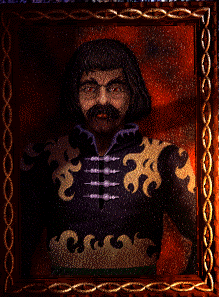When it comes to that particular Skyrim quest, the problem is that Bethesda didn't bother to turn the different plot points into situations. They could have, but they didn't. The story is absolutely on rails, almost every single aspect of it (the ones that aren't are so trivial they may as well be). But every Fallout player can agree to having done these major plot points (the only one I'm doubting about is the library in the Hub, but let's pretend for a minute that's what most players should realistically do). And yet all of them will have solved the different situations differently.
I think the difference between the Fallout and Skyrim quests that have been taken as examples can be explained by two things: first, Bethesda has become a lazy low effort company by the time of Skyrim so of course they wouldn't put in any effort to make a truly interactive quest. Second, the approach to quest design was different.
The best way to design an RPG quest is to come up with the situation first, and the story second. If you come up with the story first, you need to fiddle around and adjust it to allow for player interaction.
The guy who came up with that Forsworn conspiracy quest probably had the following train of thought: hey, I got this cool story of a conspiracy in my mind, involving the following characters, and there are cool plot points like the player being thrown into jail, and the plot of it will be very interesting.
So he has a story in mind right from the start, a way he intends for it to unravel and develop: the player witnesses a murder, then he discovers X, then he discovers Y, then Z happens. He imagines it as a traditional short story, with an instigating event, a plot twist, a climax etc.
Meanwhile, if you were to start out with a situation rather than a story, you can approach it with a more free mindset.
There has been a murder. Character X is responsible. There are clues at locations A, B, and C. Character Y is corrupt and doesn't want people investigating the murder.
Now you have a situation, and you think about possible player involvements.
Since you only have the situation and no concrete story like "Player finds clues, gets imprisoned, escapes prison, etc etc", you can look at the situation from a player's perspective and ask yourself, "What are the approaches I would like to have as a player?"
And that will more likely result in a player-driven, branching quest design.
Just with the situation details I used here - there's a murder, there's a responsible party, there are 3 clues, there is a corrupt official who doesn't want it investiagted - I can come up with several potential player interactions that might be interesting.
You can find the three clues in any order.
You can confront the culprit with the clues. You can either try to take him to the guard, kill him right there, or blackmail him so he pays you off to keep his secret.
You can go to the corrupt official with the clues. In the conversation you find out the corrupt official is involved in whatever conspiracy is responsible for the murders. You can swear to uncover his complicity, which makes him wrongfully arrest you. You can offer to join his conspiracy, which opens up a new questline.
Etc etc.
If you start your design process with "Here is a situation, let's brainstorm what kinds of actions the player might want to do with it", it automatically results in an open quest design that allows for multiple approaches and solutions.

















